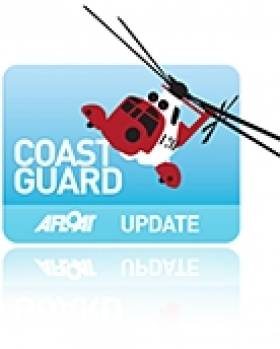Displaying items by tag: orange
Coast Guard Warning as Met Éireann Issues Orange Weather Alert
#weatherwarning – Southerly gales will develop overnight on all Irish coastal waters and on the Irish sea, gradually veering southwest to west later tonight and tomorrow and increasing gale to storm force. Frequent heavy showers, some thundery with sleet and snow for a time mainly on higher ground.
High coastal flood risk, due to the combination of very high spring tides, extremely high waves (greater than 10 m).
The Coast Guard strongly advises the public not to go out on exposed coasts, cliffs, piers, harbour walls, beaches, promenades or any other coastal areas during the inclement weather. Huge waves can be whipped up by high seas. These waves can pose hazards to anyone close to the shoreline.
Manager of the Irish Coast Guard, Declan Geoghegan said: " Extreme care should be taken in exposed areas especially cliffs, promenades, slipways and all beach areas also photography in these weather conditions has become popular and people should not put themselves at risk for such activities or indeed any water related leisure activities"
Remember to monitor weather broadcasts when travelling and heed the advice of the RSA on road use during severe weather and high winds.
Specific advice from the Coast Guard is:
• The public is advised to stay away from the shoreline and to avoid engaging in water sports
• Do not venture out unnecessarily when gale force conditions are forecast
• Avoid exposed coasts, cliff paths and coastal areas during inclement weather this week
• Owners of small vessels and fishing vessels in coastal waters should seek shelter and secure them properly with moorings.
If you do see someone in difficulty in the sea, on the shore, cliffs, lakes or rivers dial 999 or 112 and ask for the Coast Guard.






























































